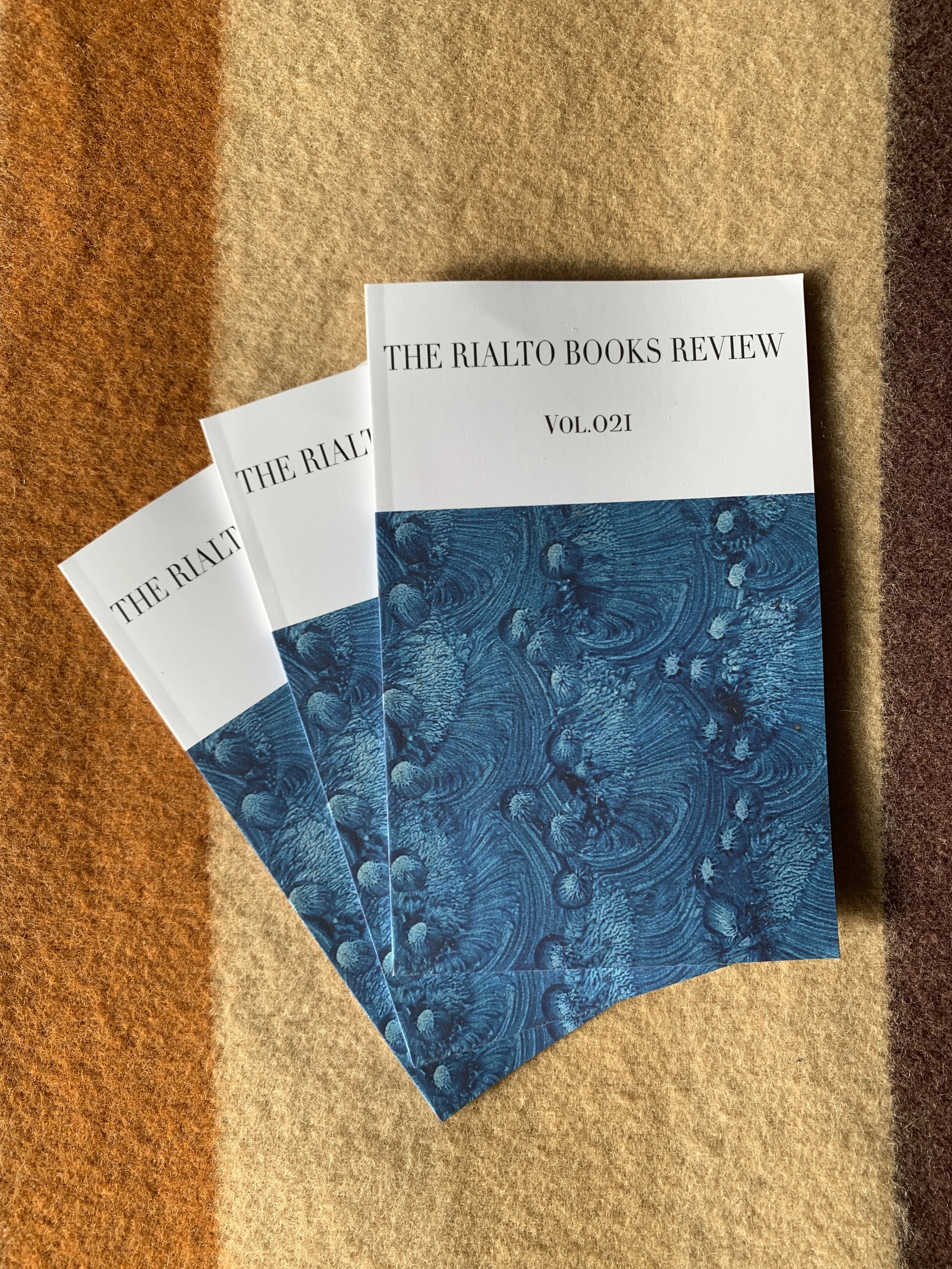The Rialto Books Review Vol.021 -- AVAILABLE NOW
Buy The Rialto Books Review Vol. 021 here.
Buy a 12-month subscription to The Rialto Books Review here.
The Rialto Books Review Vol. 021 includes an essay by Eleanor Monroe, poetry by Adam Kozak, and fiction and drama by Alexandra Ranieri and Russell Block.
Please enjoy these excerpts from The Rialto Books Review Vol. 021.
The Poetic Plant: Nature in Wordsworth and Hardy
by Eleanor Monroe
He made close acquaintance with phenomena he had before known but darkly - the seasons in their moods, morning and evening, night and noon, winds in their different tempers, trees, waters and mists, shades and silences, and the voices of inanimate things.
Thomas Hardy, Tess of the d’Urbervilles
Of Nature, by the gentle agency
Of natural objects, led me on to feel
For passions that were not my own, and think
(At random and imperfectly indeed)
On man, the heart of man, and human life.
Therefore, although it be a history
Homely and rude, I will relate the same
For the delight of a few natural hearts;
And, with yet fonder feeling, for the sake
Of youthful Poets, who among these hills
Will be my second self when I am gone.
William Wordsworth, “Michael”
Victorian poet and critic Matthew Arnold wrote in remembrance of William Wordsworth in “Memorial Verses April 1850” following the death of the poet: “He laid us as we lay at birth / On the cool flowery lap of earth” (48-49). All poetry pertaining to the natural world following the year 1850 intrinsically hails from the lifetime of lines composed by William Wordsworth over the course of his eighty years of existence.
The Once and Future King by Adam Kozak may be found in Vol.021.
The Lighthouse, Part IV
by Alexandra Ranieri
I experienced against this occurrence a revulsion so acute, that I hurried back into the house at once, and shut myself in. No matter how I tried to distract my thoughts, I could not shake the sense of horror with which they were seized, horror out of all proportion, considering the event. I could do nothing but stare at the fire, where I seemed in that opposite element to detect the scene played over and over again—and in this attitude I fell asleep.
The Laundress and the Acrobat
by Alexandra Ranieri and Russell Block
Act I
A river’s edge. A Laundress is onstage, washing her wares.
Laundress
My reflection it sometimes seems dons these dresses idling in the stream. That I might my trade betray and languid lie, as these dresses’ ladies might, is my wish, one for which I would gladly toss coins down wells, or give to sound a feigning beggar’s tin, if I believed that life offered more than this threadbare refrain. What is that I hear, a song of more than lark could tune? Alas, that feckless acrobat that ever pesters me nears again to mock my industry.
The Laundress hides in a bush.
Enter Acrobat.
Acrobat
Life’s true refrain has, until now, been drowned out by applause, such is the gallery’s acclaim for my popular tunes, the only I know by heart. For these hills whose stands are empty have I crept, the audience swept away readily as they were peanut shells, and only in the grass’s silent company can I hear how sadly creaks the instrument. But look! The laundry, too, on the far bank wants for company, its laundress nowhere to be seen.
The League of Berries and Laurels
Chapter V
by Russell Block
Christmastime has a way of bringing out the best in people and brings together the better part of persons who share the season’s joy, its spirit of giving, and emphasis on charity. Ulie’s clan has paced the windows of the Loop’s grandest store, along with merrymakers of every description the city can produce, many of whom are as captivated as is Ulie by the wonders they push to see. Festooned scenes, their elements driven by obscured motors, offer alpine respite, where model trains disappear into a wealth of portals in the mountainside, appearing again at their convenience, there at the higher bend, to the delight of the relative giants gathered at the pane. Motors cause an airborne sled to bob in uncertain conditions as it circles, piloted by an inept elf, as Santa Claus has given up the rains, instead searching a canvas bag for gifts that fall from his grasp and descend with parachutes across the rural idyll. Figures of fable are induced to wave as they traverse a rope upon a unicycle. The street’s varied pageants are driven by more complex forces, and not, as is made clear at a remove from the marble facade, where evident suffering, chaos, or simple distraction increases, by the season’s exclusive bidding. Hence by evening train returning, though now through darkness does it northward go, past sleepy homes, all aboard it joyous, and all within those homes realizing the joy encouraged by the city’s changeable abstractions.
You can read this journal with others on Papertrail.





